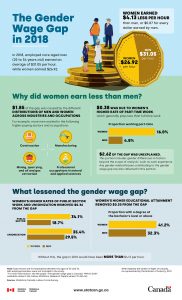Guest Blog by Kendra Bagley
Diversity in the workplace has increased drastically due to many factors such as globalization, outsourcing, and even drawing talent from multicultural regions. This increase in diversity makes it much more important to focus on creating inclusive corporate cultures. When considering how to build an inclusive corporate culture, it is important to understand the challenges that each diverse group faces in order to become more interculturally competent communicators in the workplace.
Women make up a large portion of the work force, yet there are still many challenges that they face daily in the workplace. When considering women in the workplace, the wage gap, and lack of women in leadership positions within a company, sexual harassment, expectations to look and dress a certain way, or inability to contribute openly in meetings are serious concerns. Uncovering and understanding these issues is the first step to creating a better corporate culture, then learning how to address them and increasing the intercultural competence within the company will help corporate teams to be more successful and will create a culture where people of diverse backgrounds can thrive.
I have been very fortunate in that the organizations I have worked for have had very inclusive cultures, but I know that many women and people from diverse backgrounds aren’t always so lucky. Aside from reading books, there are many ways that a person can increase their own intercultural competence to make sure that they are treating all people in the workplace in an appropriate way.
One way I learn to become a better intercultural communicator is by listening to podcasts. I commute at least an hour every day, and I try to fill that time with something educational. I recently came across a podcast called The Transformative Leader, and the episode I listened to was an interview between culture transformation consultant Amir Ghannad, president and founder of the Ghannad Group and Vicki Hudson, Chief Collaboration Officer of Highroad Global Services. The podcast discussed how to build a collaborative, high performing team across diverse cultures. In the interview, Vicki discusses the challenges that companies face in different scenarios that require intercultural communication and competence such as offshoring, mergers and acquisitions, and the day to day existence of global brands. Her three recommendations for building a productive cross cultural team were to learn culturally specific terms and acronyms; to set clear rules around objectives such as meeting etiquette and project deadlines; and to always try to find ways to connect on an personal level with those from other cultures to be able to build trust.
Another series that I have started listening to is called Women at Work by the Harvard Business Review. This podcast has over 40 episodes that walk women through different aspects of being women in the workplace, many of which are centred around communication. I enjoy listening to this podcast as it helps me to understand the challenges that women face in the workplace and gives great advice on how to overcome these challenges. This will help me to be a leader in my workplace, and will prepare me in the event that a future company that I work for is less interculturally competent.
References:
Cardon, P. G. (2010). Using films to learn about the nature of cross-cultural stereotypes in intercultural business communication courses. Business Communication Quarterly, 73(2), 150-165. Doi:10.1177/1080569910365724
Cheney, R. S. (2001). Intercultural business communication, international students and experiential learning. Business Communication Quarterly, 64(4), 150-165. Retrieved from https://search-ebscohost-com.proxy.ufv.ca:2443/login.aspx?direct=true&db=bth&AN=17393266&site=bsi-live
Ghannad, A., & Hudson, V. (2019, Dec 5). TTLP 053: “The Power of Cross Cultural Collaboration” – An Interview with Vicki Hudson [Audio podcast]. Retrieved from http://theghannadgroup.com/podcast-feed/ttlp-053
Jaidev, R. (2014). How pedagogical blogging helps prepare students for intercultural communication in the global workplace. Language and Intercultural Communication, 14(1), 132-139. doi: 10.1080/14708477.2013.866129
Kochman, T., & Mavrelis, J. (2009). Corporate tribalism: white men/white women and cultural diversity at work. Chicago, IL: University of Chicago Press.

